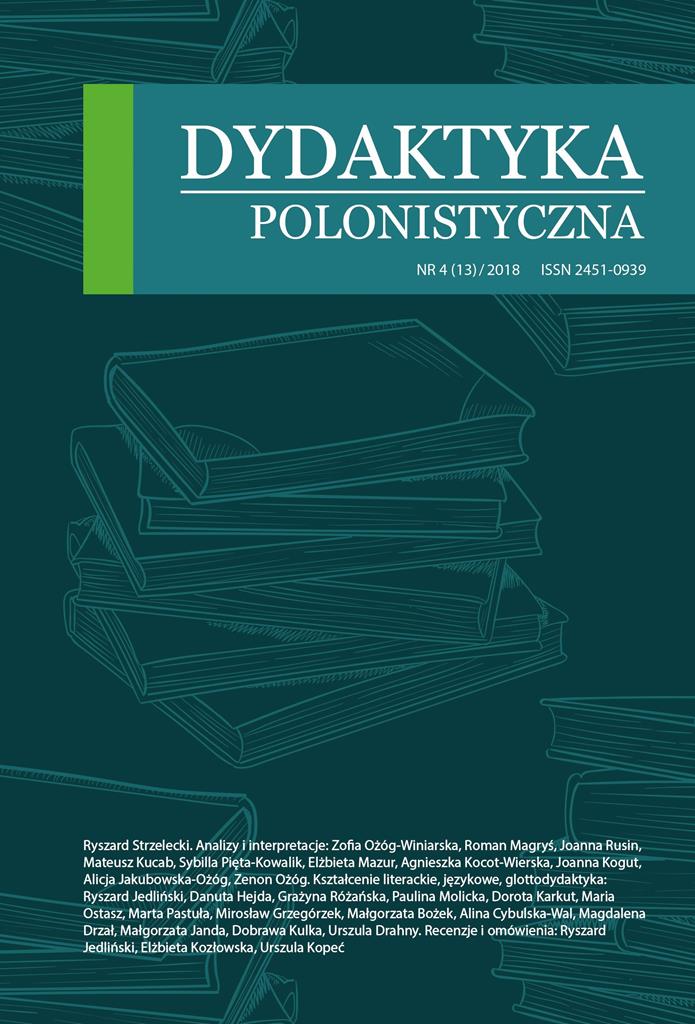„Nowe nowe media” w procesie nauczania języka polskiego jako obcego
DOI:
https://doi.org/10.15584/dyd.pol.13.2018.21Słowa kluczowe:
new media, foreign language, methods of teaching, knowledgeAbstrakt
The youth, being inextricably bound up with the newest technology in the reality outside the school, expects that the traditional teaching will as well pander to the certain updating. It challenges the contemporary foreign language policy, which ought to meet those expectations and make use of new teaching methods. The methods of teaching Polish language as the foreign one should take advantage of the digital information sources. It will not only enable learners to acquire knowledge more easily but also will make the whole teaching method more user-friendly. The significant majority of the learners use numerous mobile apps and online ebsites, such as Wikipedia, Facebook, You Tube, which were called by Paul Levinson “new new media”. The new new media allows its users to gain knowledge in an entertaining and easy manner, also motivates to learn Polish language. The learners who were demanding the possibility of controlling and creating information, now can eventually do so. Their daily activity in new new media, comments and discussions connected with the new information, beneficially influence their level of knowledge of Polish language.Pobrania
Opublikowane
2018-12-15
Jak cytować
Drzał, M. (2018). „Nowe nowe media” w procesie nauczania języka polskiego jako obcego. Dydaktyka Polonistyczna, 13(4), 260–268 . https://doi.org/10.15584/dyd.pol.13.2018.21
Numer
Dział
KSZTAŁCENIE LITERACKIE, JĘZYKOWE, GLOTTODYDAKTYKA


